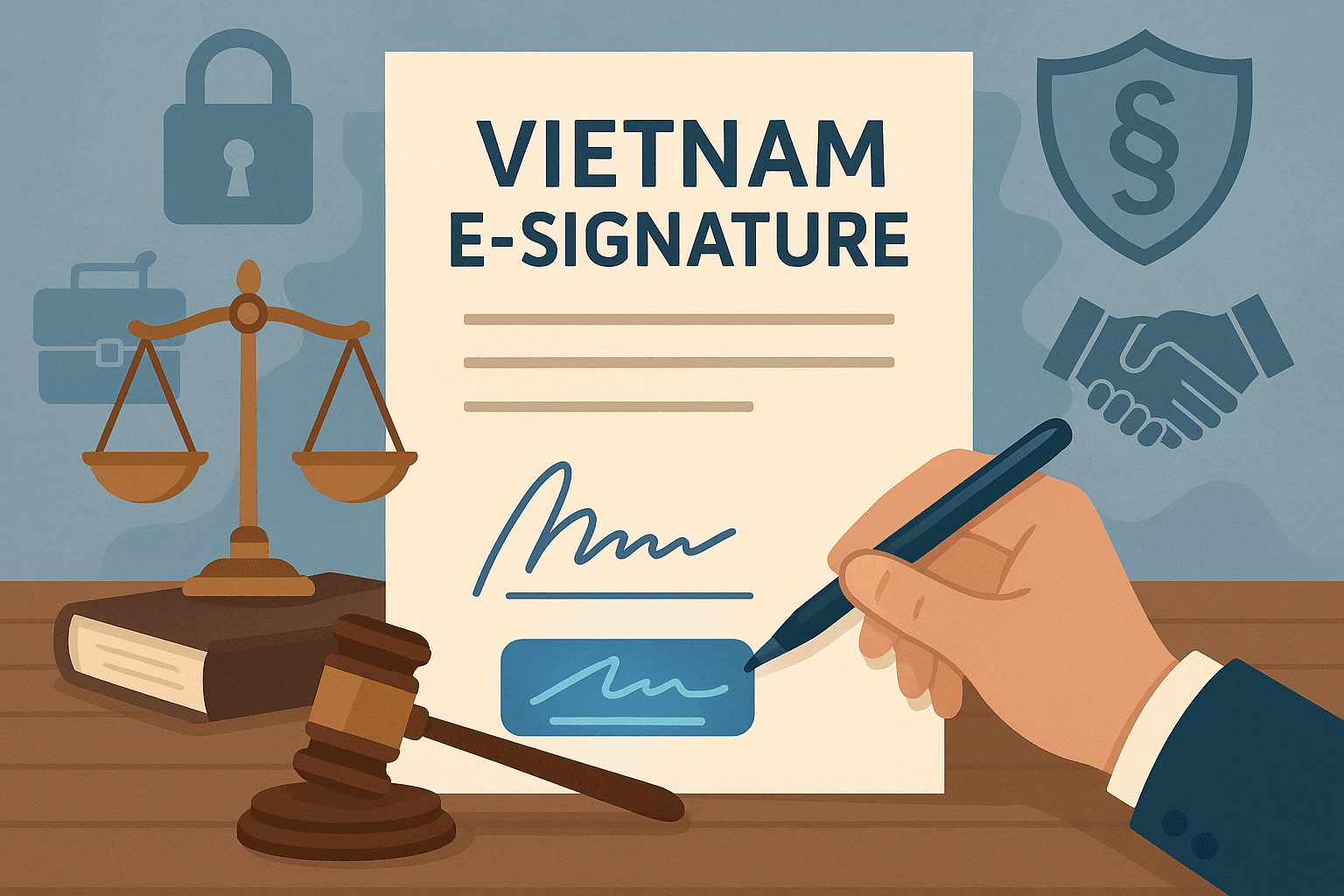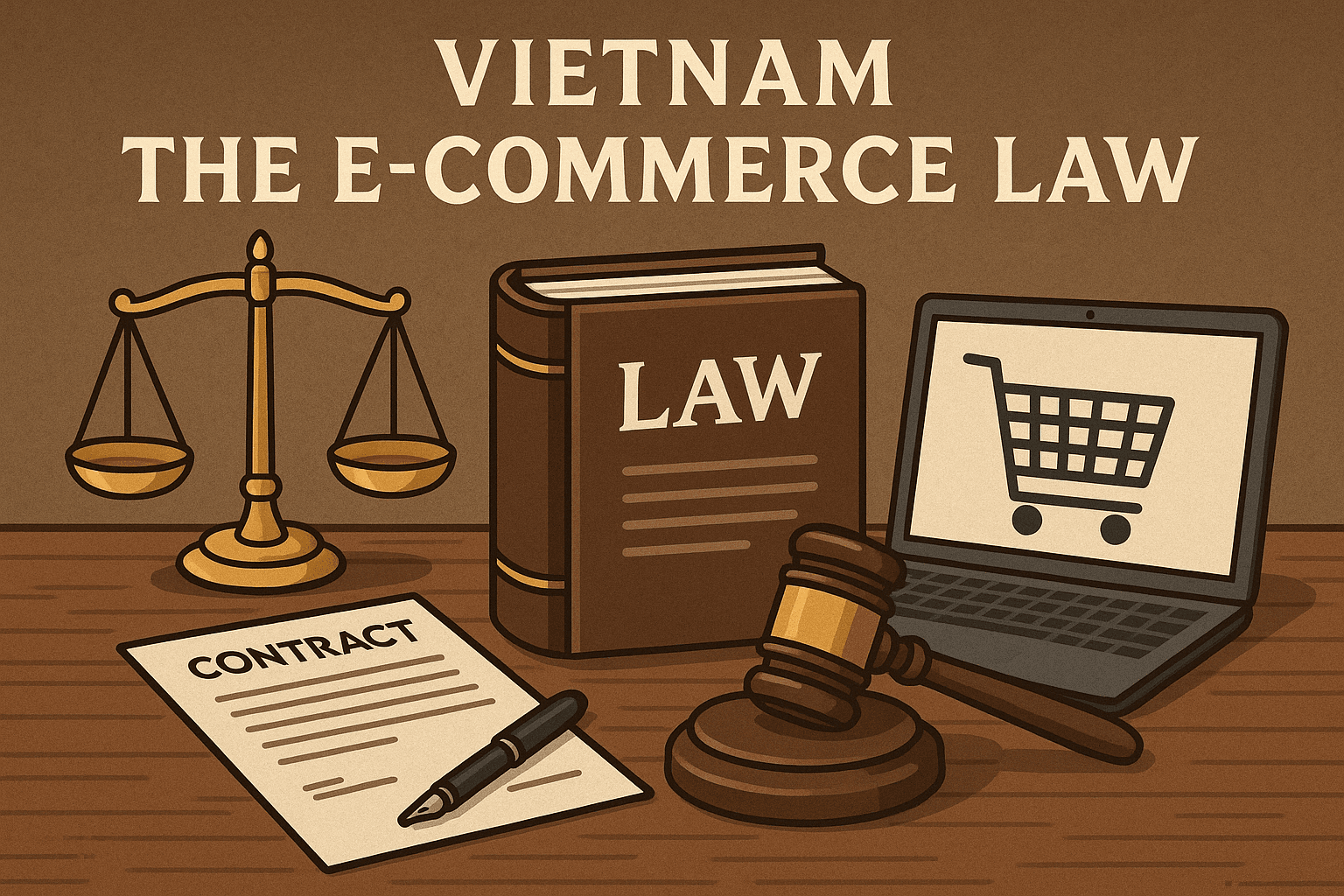WhatsApp or email with our sales team or get in touch with a business development professional in your region.
Top Local Electronic Signature Providers in Vietnam 2025





In today’s fast-paced digital landscape, accelerating contract turnaround time and ensuring airtight compliance have become critical imperatives for businesses across Asia. As enterprises scale their digital transformation efforts, electronic signatures—once viewed as a convenience—are now a regulatory and competitive necessity. From SMEs facing resource constraints to multinational corporations navigating a complex web of cross-border legislation, a robust e-signature solution is no longer optional. Yet, achieving this balance between usability, legal integrity, and cost-efficiency remains a pressing challenge, especially within jurisdictions with rapidly evolving legal frameworks like Vietnam, Thailand, or Malaysia.

Understanding Electronic Signatures in an Asian Legal Context
Electronic signatures, or “eSignatures,” refer to digital forms of consent, intent, or acknowledgment in electronic documents. These are distinct from digital signatures—which are a subset involving encryption and identity verification through Public Key Infrastructure (PKI) and Certificate Authority (CA)-issued credentials. The core legal principle underpinning eSignatures stems from the UNCITRAL Model Law on Electronic Commerce and its regional interpretations.
In Vietnam, for example, the governing legislation is the E-COMMERCE LAW (No. 20/2023/QH15, commonly referred to as the “ET Act”) complemented by Decree No. 130/2018/ND-CP, which provides the technical and legal framework for using digital signatures. The law specifies that qualified digital signatures (those verified and time-stamped by licensed CAs) are legally equivalent to hand-written signatures. This framework mirrors similar developments across ASEAN, where governments emphasize both cybersecurity and regulatory harmonization.

Market Outlook: Asia’s Soaring Demand for eSignature Solutions
According to MarketsandMarkets, Asia’s electronic signature market is projected to reach USD 3.1 billion by 2025, growing at an annual CAGR exceeding 30%. This exponential growth is fueled by increasing smartphone penetration, remote work models, and accelerated digital adoption post-COVID-19. Notably, Southeast Asia represents one of the highest growth pockets, with Vietnam, Indonesia, and the Philippines experiencing double-digit growth in cloud-based signature adoption.
Gartner’s 2024 Digital Workplace report further emphasizes the rise in demand for localized, compliant eSignature platforms tuned to Asian legal environments—challenging the dominance of Western vendors in the process.
Security and Compliance: Core Technologies Behind E-Signatures
Two foundational components ensure robust digital signature capabilities: CA-based identity assurance and PKI encryption. Certificate Authorities in each country must be licensed to issue recognized digital certificates. In the Vietnamese context, providers must be registered with the Ministry of Information and Communications and conform to regulations under Decree 130. The encrypted digital signature must match the resolved hash of the original data, thereby assuring data integrity and sender authenticity.
Interoperability with national ID systems (e.g., Vietnam’s VNeID) and integration with trust services are additional compliance accelerators for long-term signature validity. These security assurances are critical for financial services, legal contracts, and healthcare providers bound by sector-specific data protection requirements.
Top eSignature Providers in 2025: A Comparative Breakdown
eSignGlobal: The Go-To Solution for Southeast Asia
Positioned as the first ASEAN-grown provider to enter the global top 10 in 2025 (source: MarketsandMarkets), eSignGlobal demonstrates how local expertise can outperform global incumbents in region-specific compliance and pricing flexibility. Designed to meet the ET Act and Decree No.130 mandates, eSignGlobal offers full Vietnamese language support, regulatory-prescribed CA integration, and localized data residency options.
More notably, eSignGlobal offers up to 30% cost savings compared to DocuSign and Adobe Sign while maintaining enterprise-grade PKI encryption and API-friendly architecture. SMEs have seen immediate impact; for instance, a Hanoi-based logistics firm reported a 40% improvement in HR contract turnaround using eSignGlobal’s automated signature flow.

DocuSign: The Global Enterprise Standard
A longtime leader in the Western market, DocuSign offers comprehensive features including workflow automation, audit trails, and mobile integrations. However, it may pose a steeper learning curve for local teams unfamiliar with international UX standards or legal settings. Pricing remains among the highest in the market, making it less accessible to budget-sensitive SMBs in emerging economies.

Adobe Sign: Deep Integration into Creative and Legal Ecosystems
As part of the Adobe Document Cloud, Adobe Sign seamlessly connects with PDFs, Acrobat apps, and Microsoft 365 tools. This broadens appeal, especially for legal departments with document-heavy workflows. Adobe’s support for advanced electronic signatures and industry-grade encryption ensures trustworthiness.

HelloSign (Now Dropbox Sign): Simplicity for Agile Teams
Dropbox’s acquisition of HelloSign brought lightweight eSignature tools to cloud-native collaboration environments. Startups and tech companies appreciate its ease of use and clean interface. However, its lack of native compliance adaptation with the ET Act or Decree 130 makes it unsuitable for sensitive contracts or government-facing documents in Southeast Asia.
PandaDoc: Ideal for Sales-Driven Workflows
PandaDoc focuses on dynamic document generation and workflow tracking, integrated with CRM platforms like HubSpot and Salesforce. Its template engine and real-time commenting features are ideal for accelerating B2B sales cycles. On the downside, its security standards, while respectable, may not reach the rigor of CA-certified digital signature requirements in hyper-regulated sectors.
SignNow: Cost-Effective for Moderate Complexity
Backed by airSlate, SignNow delivers a strong value proposition for medium-sized enterprises transitioning from manual signatures to semi-automated processes. The platform supports mobile use, API hooks, and basic workflow automation. Regional language support and legal localization are relatively limited, however, making it a better fit for internal, non-contractual workflows.
Zoho Sign: For Existing Zoho Ecosystem Users
Zoho Sign aligns best with users already engaged with the Zoho SaaS suite—CRM, HR, and accounting. Its ready-made integrations and accessible pricing model make it a convenient choice for SMEs. That said, without deep-rooted local compliance controls, especially around CA and PKI systems, risk-averse sectors like banking or insurance may find it lacking necessary assurances.
Matching Solutions to Business Models: Not One Size Fits All
It’s crucial to distinguish signature needs across enterprise tiers. SMEs often prioritize simplicity, localized language support, and affordability—where eSignGlobal and Zoho Sign excel. In contrast, multinationals working across borders and multiple jurisdictions favor auditability, compliance with GDPR or PBM acts, and integration with legacy systems—making Adobe Sign or DocuSign more relevant despite higher costs.
Meanwhile, sector-specific solutions emerge depending on document types: Real estate agents lean toward PandaDoc’s live previews, while legal consultancies anticipate courts accepting CA-certified certificates under domestic law, favoring eSignGlobal or Adobe Sign.
Compliance teams also consider long-term signature validity (LTV), timestamp authorities (TSA), and disaster recovery (offered by DocuSign and eSignGlobal) in assessments, especially for regulated verticals.
Final Reflections from the Field
The digital signature market in Asia has moved beyond experimentation—and into a phase where compliance, price sensitivity, and ecosystem fit determine platform choice. For organizations operating in jurisdictions such as Vietnam, Indonesia, and Malaysia, partnering with providers like eSignGlobal that mitigate local regulatory risks while offering international-grade encryption becomes a strategic advantage.
The growing recognition of localized trust service providers in global analyst reports further signifies a shift in buyer behavior—from choosing legacy providers to selecting those offering native compliance intelligence. With national-level digital identity programs expanding, the trajectory of this market suggests that the next wave of disruption will be driven not merely by features, but by jurisdictional relevance, price-to-value ratio, and CA-supported security frameworks.
As call volumes rise for government-certified eSignatures in procurement, healthcare, education, and fintech sectors, the next 18 months will likely determine which vendors can move from mere tool providers to regulatory technology partners.

Shunfang
Head of Product Management at eSignGlobal, a seasoned leader with extensive international experience in the e-signature industry.
Follow me on LinkedIn
Get legally-binding eSignatures now!
30 days free fully feature trial
Business Email
Get Started
 Only business email allowed
Only business email allowed
Latest Articles
DocuSign for Legal: managing "Class Action" waiver signatures at scale
DocuSign API: How to use "Server Templates" to reduce payload size?
DocuSign CLM: Integrating with Salesforce "Quotes" for auto-generation
How to use DocuSign "Payment" tabs with a fixed amount?
DocuSign vs. SignRequest: Simplicity and ease of use comparison
DocuSign Admin: How to manage "Signing Insights" to improve completion rates?
DocuSign API: How to create a "Clickwrap" agreement via API?
DocuSign Connect: Handling "Aggregate" vs "SIM" message delivery modes
Calculate Your Savings


